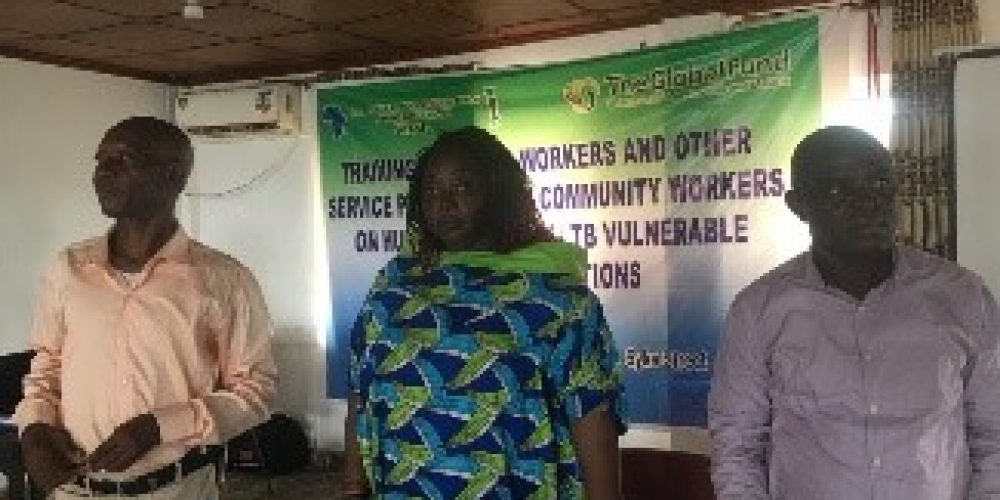The Society for Women and AIDS in Africa, Sierra Leone Chapter (SWAASL) on Monday 6th May 2024 commenced a five days training for health care workers and other services providers and community Workers on Human Right, HIV TB Vulnerable and Key Population at the St John Pull Pastoral Centre, Skye Street in Freetown.
Welcoming all present, the SWAASL Executive Director Mrs. Marie Benjamin underscored the importance of the training. She gave a brief background of SWAASL as a pan African organization and Sierra Leone Happens to be part of it. She noted that Female Sex Workers needs the space they deserve so that they live positively. She recalled that since 2016, they have provided HIV prevention to FSW in various ways through their peer groups who reach out to them with messages. She noted as an organization, SWAASL provide prep as part of the pre-HIV prevention strategy. She added that Key populations are marginalized and vulnerable group who are facing stigma and discrimination at different level. She cited that the purpose of the training is for health care workers to provide psychosocial cancelling, prevention and related support for Female sex worker in their health care setting. She said if FSW have confidence in facility they will be able to work freely and get their health commodities and services. This she said encourages other people to follow and thus adapt the culture of adherence.
The Global Fund Grant officer and IHPAU, Ansu Sheriff Kamanda lauded the effort of the organization. He said his role purpose is to ensure compliance at all level in terms of project implementation. He stated that IHPAU was created to manage the fund for government and its partners. He said their role is to follow up on implementation and to justify the topics that the partners will be training on and also access the impact on the participant.
Kemoh Mansaray from the National AIDS Secretariat acknowledged the good work of SWAAL in bring health care workers together. He said the training program marks a crucial step towards enhancing collective understanding and response to the complex challenges at the intersection of health, human rights, and vulnerable populations.
He recognized the urgent need to prioritize human rights in the context of HIV, TB, and other health issues affecting vulnerable and key populations. He noted that it essential that to approach these issues with compassion, empathy, and a commitment to upholding the dignity and rights of all individuals, regardless of their background or circumstances.
He stated that thought out the training program, critical topics such as stigma and discrimination, access to healthcare services, legal frameworks, and community engagement will be discussed. He said by equipping each other with the necessary knowledge and skills, create better support for most in need and therefore people can work towards a more inclusive and equitable healthcare system. He urged all participants to actively engage in the sessions, share your experiences and insights, and collaborate with one another to foster a supportive learning environment.
Copyright –Published in print in Expo Times Newspaper on Wednesday, May 8TH, 2024 (ExpoTimes News – Expo Media Group (expomediasl.com)





